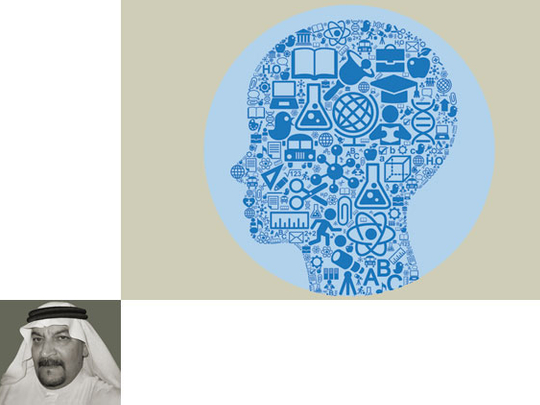
The abundance of a natural resource in any country does not often guarantee that such a blessing will have the desired impact on a country’s development.
Take the level of education in the oil-rich GCC countries, for example. In a comparison of educational skills of the regional countries against those with limited or no such resources, a study has discovered that students from the oil-producing nations are less prepared and are not on par with students from their less affluent neighbours.
The recent study by the Organisation of Economic Co-operation and Development (OECD) suggested that “resource-rich countries such as Saudi Arabia, the UAE and Qatar fare poorly in education skills compared to their resource-poor peers. Countries with greater incomes from natural resources tend to be economically and socially less developed.”
The study claims that there is an inverse relationship between the oil-rich nations and the knowledge and skills of their student population. To highlight this, the study notes that in comparison to students from a resource-poor country like Taiwan whose students averaged 543 on a mathematics test, their oil-rich counterparts came up with the following scores: Saudi students scored 336, Kuwaitis 358, Qataris 368 while the UAE group led the regional pack with a score of 421, all well below the Taiwanese results. Significantly, students in Lebanon, a neighbouring country devoid of an oil bounty, fared better with an average score of 435.
The study supports the argument that countries blessed with high income producing resources such as oil often focus more on infrastructure and lag behind in their emphasis on knowledge and education in comparison to countries with fewer resources. They also tend to be less socially developed.
Andreas Schleicher, Deputy Director and Special Advisor on Education Policy to the OECD’s Secretary-General states that “the value that a country places on education seems to depend at least in part on a country’s view of how knowledge and skills fit into the way it makes its living.”
Inferring that resource-rich nations did not have to “‘live by their wits”’ in the past and thus have not been imaginative and innovative in the field of education,
The study charges that unless this area is developed in line with the standards of those in developed countries which foster and nurture creative skills and imagination, we as a region will continue to be a dependent consumer rather than a producer of anything more tangible than a natural resource that is pumped out of the ground.
There is a huge pool of potential scientists, inventors, creators and the like. Investment could be an attractive reward.
According to statistics released by the study, the region’s private education market is valued at $5.2 billion (Dh19.08 billion), with some 1.5 million students in 4,400 private schools. This is not taking into account the massive figures at public schools. The market is expected to grow to anywhere between $11 billion and $17 billion in less than a decade, with student enrolments at private institutions reaching 2.6 million students.
However, the study also claims that there are barriers and challenges that are an impediment to growth, resulting in regional students lagging behind their international counterparts in the knowledge field despite their wealth advantages.
One of them is the shortage of qualified teachers according to a principal with Booz & Company, who claims that this remains a primary challenge to the private-school universe in the GCC. “The global education sector is currently facing a worldwide shortage of talent, resulting in significant competition for well-qualified educators, particularly in international and western curricula schools. This competition is likely to intensify in the coming years. GCC operators may not be able to match the lifestyle-related prerequisites available to expatriate teachers in competing markets, forcing them to either increase salaries or hire less-qualified individuals.”
Another barrier holding back this sector is said to be land ownership. According to the Booz & Company report, most GCC countries restrict foreign land ownership, requiring potential private-school investors to partner with a national following some lengthy bureaucratic procedures. “This complex and time-consuming process is off-putting to many.”
Then there are the “not so clear” regulations that create yet another challenge facing potential investors.
‘There is a notable perception among operators and investors that regulations are not applied or enforced consistently. Sophisticated investors outside of the GCC express a very low tolerance for regulatory risk.”’
Understanding this drawback has spurred some GCC countries to sit up and take notice. Affiliations with world class universities have become common in the UAE, Qatar and to a lesser extent in Bahrain. But at the private school level from K-12, such affiliations are woefully absent.
As the study concludes, “Today’s learning outcomes at school, in turn, are a powerful predictor for the wealth and social outcomes that countries will reap in the long run.”
So what are we waiting for? Let us get on with it. Our future begins today.
Tariq A. Al Maeena is a Saudi socio-political commentator. He lives in Jeddah, Saudi Arabia










